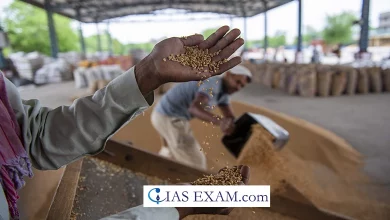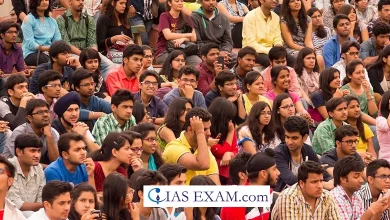IPC Sec 295A – Hate Speech and Blasphemy
[GS Paper 2 – Indian Penal Code, Indian Constitution]
Context – The debate surrounding the comments by some political spokespersons has put the spotlight on the IPC Sec 295A which deals with criticism of or insult to religion.
India does not have a formal legal framework for dealing with hate speech. However, a cluster of provisions, loosely termed hate speech laws, are invoked. There are primarily some laws to deal with offences against religions.
About Section 295A
- Section 295A defines the contours of free speech and its limitations with respect to offences relating to religion.
- It prescribes punishment for deliberate and malicious acts, intended to outrage religious feelings of any class by insulting its religion or religious beliefs.
- It calls for imprisonment of either description for a term which may extend to [three years], or with fine, or with both. It has been invoked on a wide range of issues from penalising political satire and seeking bans on or withdrawal of books to even political critique on social media.
Penalizations related to Religious Offences
Section 295A is one of the key provisions in the IPC chapter to penalise religious offences. The same chapter includes offences to penalise:
- Damage or defilement of a place of worship with intent to insult the religion (Section 295)
- Trespassing in a place of sepulture (burial) (Section 297)
- Uttering, words, etc, with deliberate intent to wound the religious feelings of any person (Section 298) and
- Disturbing a religious assembly (Section 296)
Background of the Law
- Colonial origins of the hate speech provisions are often criticized for the assumption that Indians were susceptible to religious excitement.
- Section 295A was brought in 1927. The antecedents of Section 295A lie in the communally charged atmosphere of North India in the 1920s.
- The amendment was a fallout of an acquittal under Section 153A of the IPC by the Lahore High Court in 1927 in Rajpaul v Emperor, popularly known as the Rangila Rasool case.
- The state often invokes Section 295A along with 153A of the IPC, which penalizes promoting enmity between different groups on grounds of religion, race, place of birth, residence, language, etc.
- It acts prejudicial to maintenance of harmony and Section 505 of the IPC that punishes statements conducing to public mischief.
Online Hate Speech
- In cases where such speech is online, Section 66A of the Information Technology Act was invoked.
- However, in a landmark verdict in 2015, the Supreme Court struck down Section 66A as unconstitutional on the ground that the provision was “vague” and a “violation of free speech”. However, the provision continues to be invoked.
Challenges Associated with the Laws
- The broad, vague terms in the laws are often invoked in its misuse. Lower conviction rates for these provisions indicate that the process — where a police officer can arrest without a warrant — is often the punishment.
- Critics have pointed out that these laws are intended for the state to step in and restore “public order” rather than protect free speech.
Way Forward
Judicial relief does come in the end, but the bitter truth is that the process is the punishment. It is time our lower courts stop taking reflexive cognisance of trivial cases filed on the basis that the religious, caste or cultural sensitivities of some group have been offended.
These sections need to be read down, their scope narrowed in a way that moral vigilantes and those who affect an emotional victimhood can no longer exploit the law to serve their narrow ends.





.png)



